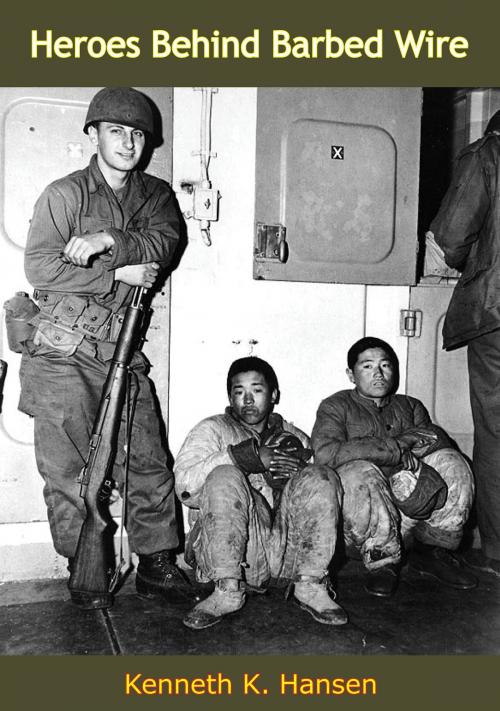| Author: | Kenneth K. Hansen | ISBN: | 9781787208742 |
| Publisher: | Borodino Books | Publication: | January 12, 2017 |
| Imprint: | Borodino Books | Language: | English |
| Author: | Kenneth K. Hansen |
| ISBN: | 9781787208742 |
| Publisher: | Borodino Books |
| Publication: | January 12, 2017 |
| Imprint: | Borodino Books |
| Language: | English |
Behind barbed wire in Korea, 88,000 heroic Chinese and North Korean prisoners of war wrote an unforgettable account of their disillusionment with communism. This is the simple and moving story of their resolute decision to remain on freedom’s side of the Bamboo Curtain, rather than accept repatriation to their communist homelands, vividly recounted here by a first-hand observer, the former Chief of Psychological Warfare of the Far East Command.
The story begins before the Korean armistice, in the prison compounds maintained by the United Nations Command on Koje Island. Here, humane and thoughtful treatment proved a more potent weapon than the communists’ brainwashing methods. The prisoners were carefully screened; only those who declared they would forcibly resist repatriation were admitted to the non-communist camps. Inside the camps, even though behind barbed wire, these men found a greater freedom of opportunity than they had been allowed in their communist homelands. They learned to read and write, studied agriculture and learned useful trades; and enjoy sports and recreation.
Then, from Oct. to Dec. 1953, under the terms of the armistice, the anti-communist prisoners faced a crucial test of their determination. In a demilitarized zone near Panmunjom they were individually interviewed and subjected to “explanations” by communist officials regarding their final choice. There is deep tragedy and high comedy in the encounters at Panmunjom: tragedy in the threats made by the communists against the men and their families; comedy in the ingenious methods the prisoners devised to turn the tables on their interviewers during these grotesque propaganda sessions.
The outcome? Only three percent of the total number of prisoners interviewed chose to return to a life under communist rule. Here was a disastrous loss of face for the communist world, and a sweeping victory for the cause of individual freedom…
Behind barbed wire in Korea, 88,000 heroic Chinese and North Korean prisoners of war wrote an unforgettable account of their disillusionment with communism. This is the simple and moving story of their resolute decision to remain on freedom’s side of the Bamboo Curtain, rather than accept repatriation to their communist homelands, vividly recounted here by a first-hand observer, the former Chief of Psychological Warfare of the Far East Command.
The story begins before the Korean armistice, in the prison compounds maintained by the United Nations Command on Koje Island. Here, humane and thoughtful treatment proved a more potent weapon than the communists’ brainwashing methods. The prisoners were carefully screened; only those who declared they would forcibly resist repatriation were admitted to the non-communist camps. Inside the camps, even though behind barbed wire, these men found a greater freedom of opportunity than they had been allowed in their communist homelands. They learned to read and write, studied agriculture and learned useful trades; and enjoy sports and recreation.
Then, from Oct. to Dec. 1953, under the terms of the armistice, the anti-communist prisoners faced a crucial test of their determination. In a demilitarized zone near Panmunjom they were individually interviewed and subjected to “explanations” by communist officials regarding their final choice. There is deep tragedy and high comedy in the encounters at Panmunjom: tragedy in the threats made by the communists against the men and their families; comedy in the ingenious methods the prisoners devised to turn the tables on their interviewers during these grotesque propaganda sessions.
The outcome? Only three percent of the total number of prisoners interviewed chose to return to a life under communist rule. Here was a disastrous loss of face for the communist world, and a sweeping victory for the cause of individual freedom…















